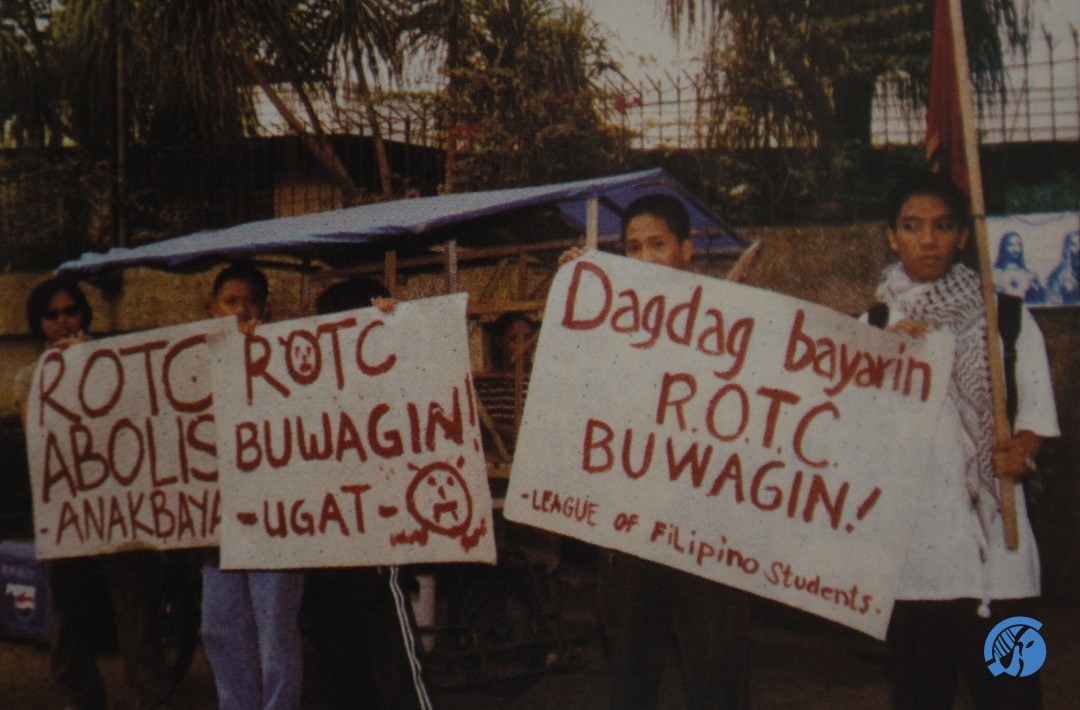
In 2001, students from Region XI higher educational institutions sought to abolish ROTC after alleged corruption and abuses.
The Region XI Commission on Higher Education (CHEd) gathered National Service Training Program (NSTP) implementers and student leaders in a conference yesterday to talk about the probable revival of Reserve Officers Training Corps (ROTC), following Duterte’s pronouncements of making ROTC mandatory.
SAMAHAN President John Chin informed students through a Facebook post the suggestions raised during the conference. This includes placing ‘ROTC-similar’ programs to basic education and realigning all NSTP components into one program that shall comprise of the ROTC, Civic Welfare Training Service (CWTS) and Literacy Training Service (LTS) core principles. A study on the Impact Evaluation of ROTC is also being conducted. Chin said that the results is needed to “come up with the decision of what to implement and how to implement” ROTC.
“As enlightened by CHEd, particularly of Mr. Julito D. Vitriolo, Executive Director of CHEd, they made mention that the ROTC program will be focusing not only on the marching drills or the weapon handling activities, but on more relevant matters to these times,” Chin expressed in his post, adding that this reassures that the school controls ROTC rather than the Armed Forces of the Philippines (AFP).
On the other hand, a day before the conference, political party Buklurang Atenista (BUKLAT) released their statement opposing the reinstatement of ROTC in colleges and universities. They cited the cases of abuses and the endemic corruption in ROTC in the past to justify their opposition.
“The revival of a mandatory ROTC would translate to the violation of students’ democratic and academic rights. Its return to HEIs endangers the present and future youth, and depreciates the accounts of struggles from all of its past victims,” BUKLAT stated.
Meanwhile, Fr. Tabora expressed in an interview last August that ROTC should be optional.
“You don’t teach much patriotism simply by marching people up and down and telling them to obey somebody’s barking orders,” the university president explained. “We want our students to be able to think and to be able to weigh different options; to be able to lead, not just to follow somebody else’s [orders].”
Before, when the said program was strictly implemented, there were several cases of harassment, corruptions, and violations committed particularly by ROTC commandants.
An example was the reported death of the University of the Sto. Tomas (UST) student Mark Welson Chua, which was linked to his exposé of the believed corruption in their ROTC unit. Even in AdDU, in the year 2000, ROTC as a venue for discipline was questioned.
At present, Ateneo de Davao is among the universities that do not offer ROTC courses. Instead, the school mandates students to take National Service and Training Program (NSTP) which requires community engagements and fieldwork.